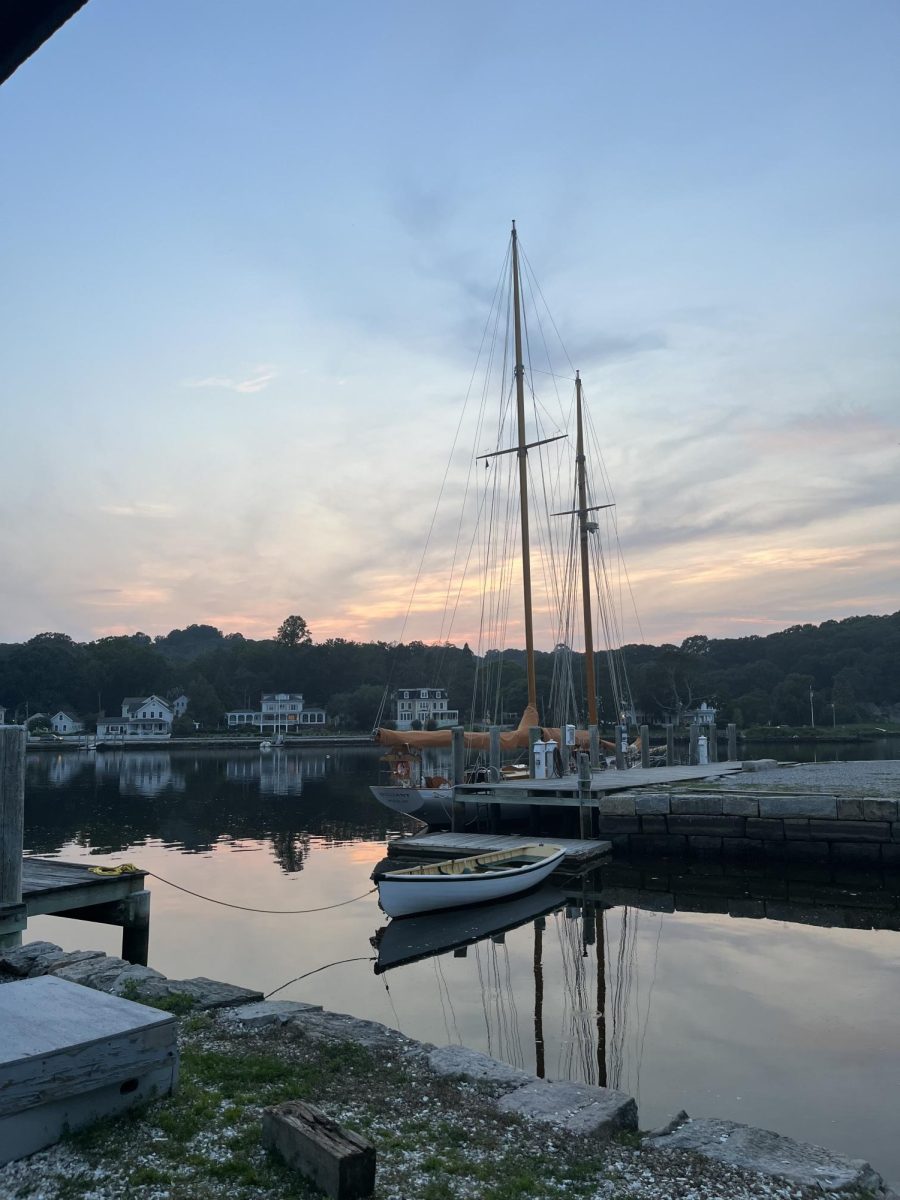We are the current class of Williams-Mystic students (Spring 2024). We have heard that Williams College is considering ending its financial support to Williams-Mystic, effectively shutting it down by Spring 2025. We believe that would be a serious mistake.
Williams-Mystic is a semester-long program that teaches the skills required to be an effective, thoughtful advocate for important causes: How to examine complex issues deeply and from a wide range of perspectives, with the ultimate goal of empowering students to make a difference. Every aspect of the Williams-Mystic experience is centered on this goal, whether it is our interdisciplinary coursework, conversations with stakeholders from all sides of an issue, or independent research projects.
Williams-Mystic’s unique educational experience is driven by the decades-long reciprocal relationships between the program and the communities from which its students learn. This semester, we spoke with countless people on the front lines of the climate crisis, including Indigenous leaders, people displaced by storms, government officials, and more; all of whom taught us things that could have only been learned through direct experience. It has taken decades for Williams-Mystic as a program to build relationships characterized by trust, reciprocity, and willingness to listen.
This semester, we saw the strength of these relationships firsthand. In Louisiana, we met the chief and elder chief of the Grand Caillou/Dulac Band of Biloxi-Chitimacha-Choctaw, with whom Williams-Mystic has a long-standing and deeply felt relationship. We listened to and learned from their stories. Several of us were moved to tears when our very own policy professor was named an honorary member of the tribe for her work supporting them over the years. To provide just one example, when Hurricane Ida hit Louisiana in 2021, the Williams-Mystic community mobilized to give back to this community that had taught it so much, raising funds and helping people access government resources during an emergency.
Countless alums of the program can attest that Williams-Mystic enabled them to effectively speak up for what they believe in, inspired them to pursue careers defending the environment, or forever changed the way they think about complex issues. Many of these students, especially those from marginalized communities along with those who do not attend Williams, would not have otherwise experienced the expansion of opportunities and academic rigor provided by a program like Williams-Mystic.
The outsize impact of Williams-Mystic alums on environmental justice, sustainability, and conservation provides clear evidence of the program’s success in this mission — Devon Parfait ’22, chief of the Grand Caillou/Dulac Band of Biloxi-Chitimacha-Choctaw and coastal resilience analyst for the Environmental Defense Fund; Benjamin K. Evans ’96, director of NOAA Office of Coast Survey and National Hydrographer for the United States; and Catherine Robinson Hall, environmental lawyer, coastal policy professor, and member of the Rhode Island Coastal Resources Management Council — to name just a few.
It would be too hasty to close such a valuable program on account of temporary financial issues, especially when alternative solutions and possible reforms have not been adequately considered. Yes, maintaining the program financially in the future may require changes to be made. But in the words of the Williams College Strategic Plan, which holds up Williams-Mystic as a key example of the value of experiential learning, “[t]his is a labor-intensive mode of education that requires a low ratio of students to faculty. But it would be a mistake to misread the effort as inefficiency: Our program is profoundly and distinctively transformative.”
Williams-Mystic has spent 47 years making important contributions to action on environmental issues, and the need for these contributions is more urgent now than ever. As an institution committed to advancing equity, sustainability, and societal impact, the College should seek to expand these contributions, not diminish them.
We ask that you renew the College’s partnership with Mystic Seaport Museum and take the time to fully explore all options to keep Williams-Mystic open. We believe it is vitally important to continue the work of Williams-Mystic for the coming years.
Signed,
Williams-Mystic
Class of Spring ’24
Alyssa Lee, Carnegie Mellon University ’24
Nicolo Sabelli, Williams College ’26
Grace Irish, Williams College ’26
Emily Pytell, University of Michigan ’25
Jack O’Brien, Williams College ’26
Ry Emmert, Williams College ’26
Vanya Funez, Williams College ’26
David Weakley, Bates College ’25
Sam Elliott, Wellesley College ’25
Victoria Yang, Dartmouth College ’26
Andrew Guttentag, Wesleyan University ’25
Catherine Schunk, University of Dallas ’27
Jack Hynes, Connecticut State Community College ’24
Marvin Howell, University of Illinois Urbana-Champaign ’25





